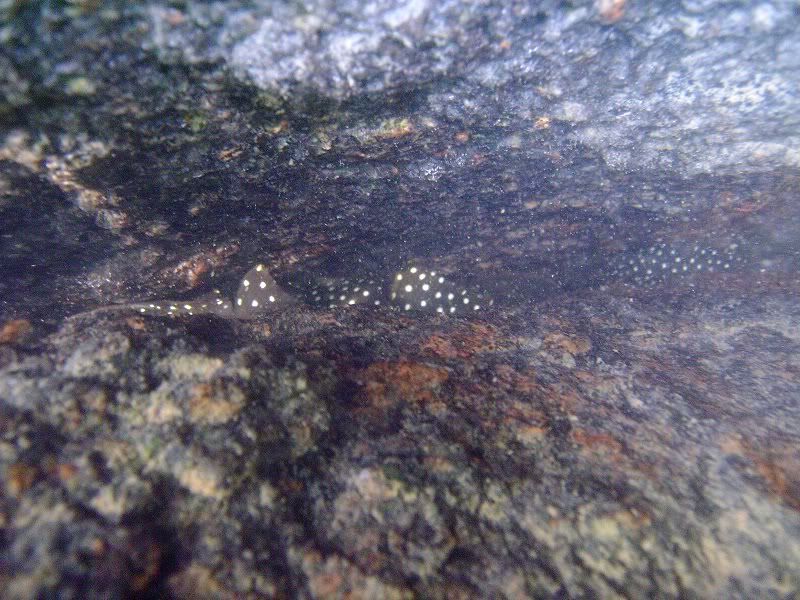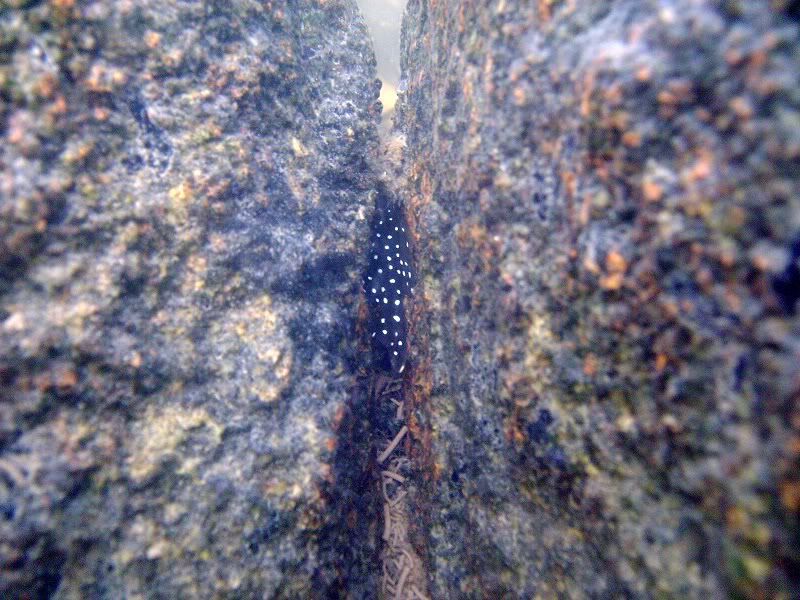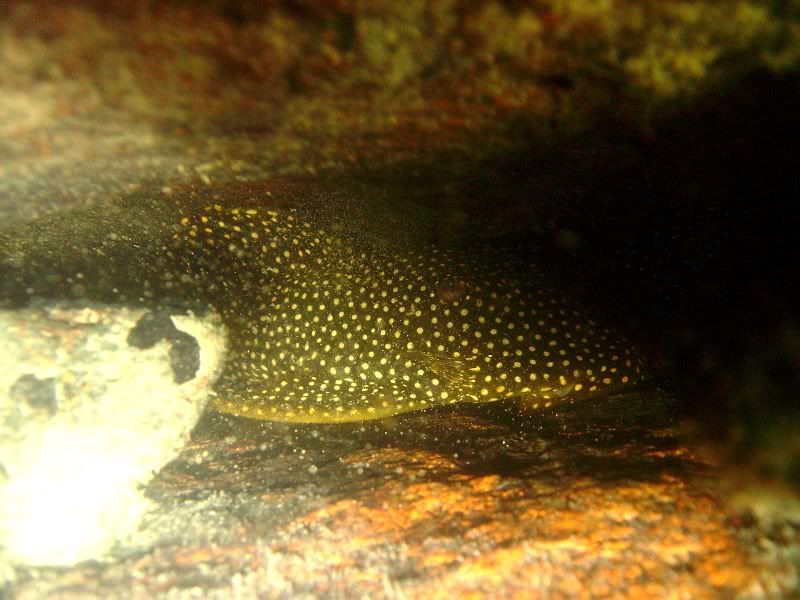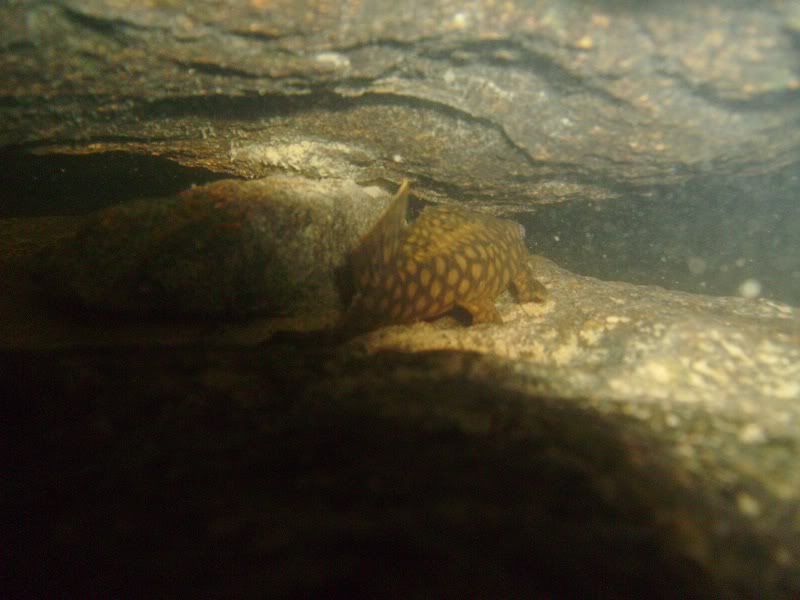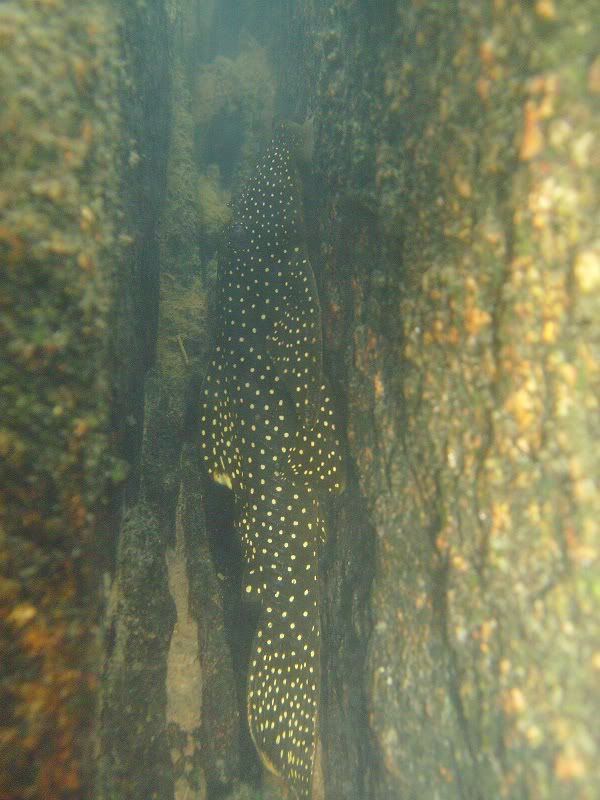Page 2 of 3
Re: Diving in Xingu
Posted: 22 Sep 2012, 20:33
by saor alba
It would be a cracking idea if some group of folk out there were filming & researching everything possible in the Xingu just now before or incase most may be lost ie plants, beastie,s , fish the whole shabang of diversity of the river ,same to what youve done Heribertogj though even it was for your pleasure.
Who knows generation years from now the people then. may be interested in learning from past mistakes that were taken by government bodies and powerful individuals.
Re: Diving in Xingu
Posted: 22 Sep 2012, 20:46
by LittleAfricaAquatics
Amazing photos!
Re: Diving in Xingu
Posted: 22 Sep 2012, 21:00
by Heribertogj
Haakonh
The distribution of the different morphotypes may overlap (L-66, L-333, L-399, L-400, all with body relatively high and vermicular markings ranging from narrow and closely-spaced to large and well-dispersed in juveniles and adults) they´re found in crevices in rock formations in calmer waters or in pools and sheltered margins in depths of between one and 15 meters)
Rob rensen
Many plecos inhabit moderate to swiftly-flowing waters, at mean depths of between one and 25 meters (L-25 and L-174) in crevices. In this specific dive, i've found midsize Panaques in depths 3-5 meters.
Wrasse
The clarity is greater in the dry season (June/November) 1,1/1,4 meters... pH can range from 5.5 to 8, depending on the season... the temperature can range (29/31,2º).. Gravel, crevices in rock formations, wood...
Flyfisher
pH 8!!!!! Serious, it was a suprise!!! I´ve made a study in 2010 (August/October)... I don´t know how it is now...
Saor alba
I´m a biologist, and i made a study in middle xingu river... I wrote a book (Ornamental plecos of the middle Xingu River, with two others incredible researchers) release date in march this year. Currently there are excellent researchers working in the region...
(Sorry, my english is terrible!!)
Re: Diving in Xingu
Posted: 22 Sep 2012, 21:03
by Heribertogj
The book cover
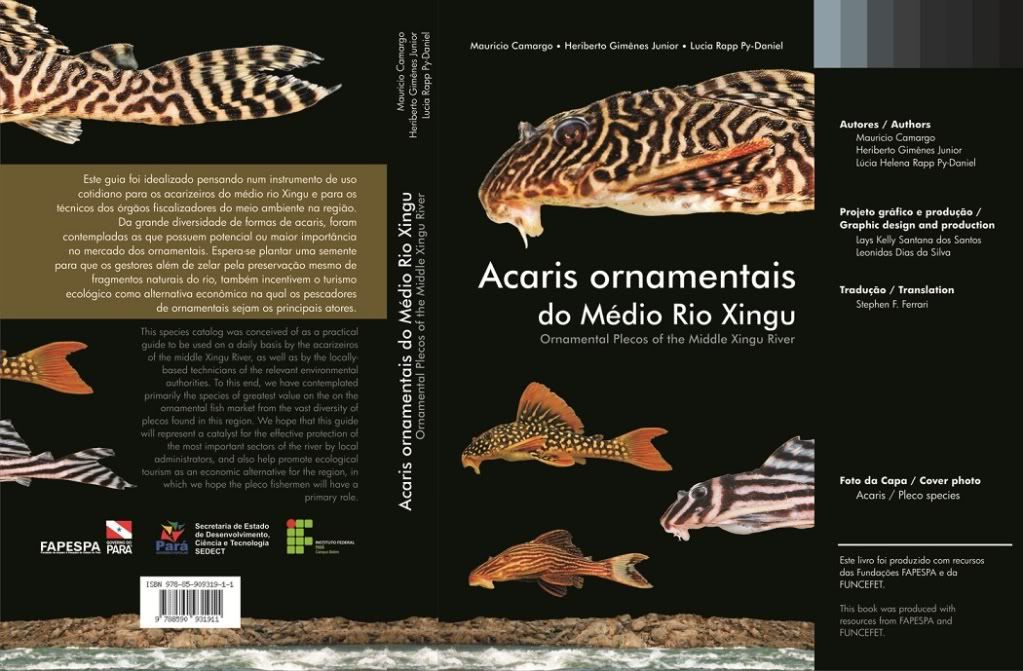
Re: Diving in Xingu
Posted: 22 Sep 2012, 21:05
by saor alba
Well Heribertogj get a signed copy in english (preferred)over to me then

and some other good interesting facts as well

good man
Re: Diving in Xingu
Posted: 22 Sep 2012, 21:23
by Heribertogj
Re: Diving in Xingu
Posted: 22 Sep 2012, 23:29
by Flyfisher
Your English is great!
I'm very interested in the PH reading variances you spoke of. At what time of year, and how close to rainy season do readings of PH8 occurr???
Is anyone else interested in this????? Is it a change in PH more than water temperature in the rainy season that prompts a spawn?????
I can imagine how the heavy rains would make a massive difference to PH and would guess that it lowers it. Am I right????
Very interesting!
I'm feeling less pressured to buy an RO filter now

Hehe!
Re: Diving in Xingu
Posted: 23 Sep 2012, 08:40
by mekkalicious
to have the book, you send in europe? in what language?
very nice photos!!!!!!!!!!!
Re: Diving in Xingu
Posted: 23 Sep 2012, 09:22
by grokefish
Matt30 wrote:I have had my feelers out for a Parancistrus nudiventris for over two years now, grate to see a picture of one in the wild, my favourite Catfish.
Thanks for posting.
Me too, probably more than 2 years for me. I fear the search is fruitless

Sad to think that when H.Zebra exploded on to the fish keeping world it was fears of overfishing that were expressed, who would have thought it would be greedy developers and crooked politicians......
Re: Diving in Xingu
Posted: 23 Sep 2012, 09:38
by jackrevi
WOW...

Re: Diving in Xingu
Posted: 23 Sep 2012, 09:40
by rob rensen
Thx !
And many thx for sharing you're pictures...great stuff. Keep on posting !!
I'm a huge panaque fan.....so this is heaven to me

Re: Diving in Xingu
Posted: 23 Sep 2012, 09:42
by rob rensen
could you post the isbn number from the book....
Re: Diving in Xingu
Posted: 23 Sep 2012, 10:28
by Phyllonemus
Heribertogj,
did you see some Auchenipteridae that are typical for this area ?
(Centromochlus heckeli, Centromochlus schultzi, rachelyopterus sp. `RIO XINGU' )
Re: Diving in Xingu
Posted: 23 Sep 2012, 10:40
by Durlänger
rob rensen wrote:could you post the isbn number from the book....
ISBN 978-05-909319-1-1 if I read the picture correctly (not realy sure about the 0 in the 9th place


)
pH 8 should be befor rainseasen, < 6 while rainseasen
Re: Diving in Xingu
Posted: 23 Sep 2012, 13:15
by kawa85
Hi, congratulations for your pics, they're wonderful

Do you know the value of the alkalinity?
Re: Diving in Xingu
Posted: 23 Sep 2012, 21:55
by David R
Great pics, would love to see more! And it would be interesting to hear more about the trip, how does one travel there, are there guides, etc etc. What you've done is but a dream for many of us.
Is your book going to be translated to English? I certainly hope so. Your English is far better than many of the native English speakers here...
Re: Diving in Xingu
Posted: 24 Sep 2012, 15:37
by ElTofi
as my neighbour's son (4 years old) would say in such circumstances : I hate you ! I hate you ! I hate you !

Jesus ! so beautiful pictures, expedition and co-authors...
I met Lucia Helena in 2009 in Hannover, and she gave us a wonderfull talk about scientist expeditons on the Xingu (among others)...
I'm always mad about those Xingu cats ! especially on the "big ones" (panaque, Scarlets, Acanthicus, etc...)



a dream... always on my before-40-to-do-list !!!
Re: Diving in Xingu
Posted: 24 Sep 2012, 18:20
by dw1305
Hi all,
PH8!?!?!? Are you serious??? Is this because of work being done on the dam, concrete, brickwork, construction processes?? or is this the norm????
The pH value on its own isn't very informative, but you can draw some conclusions based on "EVERS/SEIDEL Baensch Catfish Atlas I" Xingú water parameters:
ph 6,5
1°KH
1°dGH
120µS/cm
Fe <0,05 mg/l
End of the drytime
When you consider pH, you need to think of the pH of your water in terms of the amount of H+ ions, the ratio of H+ ion donors (acids) and acceptors (alkali or bases), and the reserve of bases (or dKH) and acids. The Rio Xingu is a "clear water" river, meaning that there aren't the tannins and humic compounds that are present in the black water tributaries north of the Amazon, like the Rio Negro, that would permanently lower pH. It is clear water river because it has flowed across the Brazilian shield of very old, inert rocks, so in this case almost no dKH, and pH becomes a pretty meaningless measurement.
In soft water very small changes in water chemistry (that effect the H+ donor and acceptor ratio) will cause large changes in pH. Fluctuations in pH don't effect fish in soft water, pH will naturally fluctuate, for example during the photosynthetic cycle as CO2 levels vary. You can show this really easily by adding CO2, which changes pH, but not alkalinity.
This is also why pH is a really important measure for marine aquarists and Tanganyikan catfish keepers where the water is full of salts and highly buffered, and any change in pH indicate a huge change in water chemistry.
cheers Darrel
Re: Diving in Xingu
Posted: 24 Sep 2012, 19:05
by exasperatus2002
mangopleco wrote:thats so sick i wanted do that sometime
Your not the only one! Deffinately adding this to my bucket list.
Re: Diving in Xingu
Posted: 25 Sep 2012, 00:02
by Flyfisher
"Sick""bucket" list!?!? Doesn't bear thinking about.

/
Re: Diving in Xingu
Posted: 25 Sep 2012, 18:44
by Heribertogj
Thanks guys!!!
Re: Diving in Xingu
Posted: 25 Sep 2012, 18:57
by Heribertogj
Phyllonemus wrote:Heribertogj,
did you see some Auchenipteridae that are typical for this area ?
(Centromochlus heckeli, Centromochlus schultzi, rachelyopterus sp. `RIO XINGU' )
Hi Phyllonemus!! I saw Centromochlus schultzi around Belo Monte, in crevices.
Re: Diving in Xingu
Posted: 25 Sep 2012, 20:31
by verbal
awesome thanks for sharing
Re: Diving in Xingu
Posted: 25 Sep 2012, 20:37
by apistomaster
jeremybasch wrote:Wow! What I'd give for some of those fish! We haven't seen those Crenicichla in a long time due to the ban.
Jeremy
I had the same thought although these little guys get way to large for me.
Really great photos for posterity.
The fish species diversity and impending loss of it is a tragic outcome for the Rio Xingu in the name of "progress".
And to think that there are dozens more hydroelectric river impoundments planned in the Amazon Basin.
Given the history of the USA in the area of hydro-power and destruction of fish habitat we have no moral high ground from which to pontificate but it is sad to see Brazil go down this path none the less.
Re: Diving in Xingu
Posted: 26 Sep 2012, 02:56
by jp11biod
ya gotta' feed all those mouths, you know.
there are just way too many people and they are everywhere
Re: Diving in Xingu
Posted: 26 Sep 2012, 11:24
by Phyllonemus
Heribertogj wrote:
Hi Phyllonemus!! I saw Centromochlus schultzi around Belo Monte, in crevices.
Thanks.
Re: Diving in Xingu
Posted: 26 Sep 2012, 19:24
by marsbar
Has anyone figured out the isn number yet, can't find anything on the net about buying the book
Re: Diving in Xingu
Posted: 26 Sep 2012, 19:26
by AleGer
Heribertogj, thanks a lot for sharing! The photos are amazing!
Hypancistrus zebra were collected in six different locations (near at Altamira, near at Belo Monte and the middle of this course, called "Volta Grande") Found in rock crevices in moderate flowing streams.
I wonder is there anything special in these locations? And why there isn't any zebra among the whole part of the river between Altamira and Belo Monte.
Heribertogj, could you please share some info about L014 and L082? In what kind of river (depth, current) did you usually see L014?
Did you see any L082?
Usually what fish are found together with L014 or L082?
Also was there a lot of drift wood in the place where Hypancistrus, Scobiancistrus or L082 species?
About you book. As far I understand there is an English version isn't it? Is your book already in sale? Unfortunatly can't find it in sale:(
Re: Diving in Xingu
Posted: 27 Sep 2012, 02:06
by CUPfishhead
Such fantastic photos, and information. Keep it all coming. Would love to see more photos, Good luck with the rest of your research, look forward to seeing the book!!!
BTW I am so incrediably jealous!!!!!
Re: Diving in Xingu
Posted: 27 Sep 2012, 12:05
by amiidae
Heribertogj wrote:The book cover

Hi there,
Is this the updated copy or the 1st print that was too dark ?
btw, are you Heriberto Gimenes jr ?
Ben

